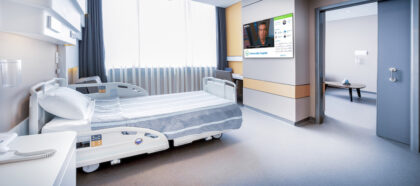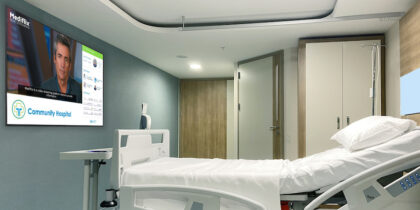The healthcare technology industry is growing rapidly, as evidenced by the 50,000+ people who attended HIMSS this year in Las Vegas. While there, I spoke with Samsung’s Dr. David Rhew about some of the most impactful innovations that are changing the lives of patients and providers.
Combatting the opioid epidemic is top of mind not only for those in the healthcare space but Americans across the country affected by this disease. While we’ve historically looked to pain medication as a solution to treat those with chronic conditions, there are now drug-free innovations that may help to improve people’s lives.
Clinical trials are also a very important part of the future of healthcare, and often where the latest technology and medications come to life. Samsung has recently completed clinical trials tied to how wearables and VR are changing the future of pain management.
“The amazing thing that we’re starting to see is that virtual reality can treat pain,” Rhew said. “In a randomized controlled trial that we did with Cedars-Sinai, we saw a 52 percent reduction in pain in these hospitalized patients compared to a control group that watched the same type of content on their TVs.”
Samsung is also working with partners like Integron to examine how smartphones, tablets and wearables can better capture information in these clinical trials. One reason trials are tapping into these solutions for patient-reported outcomes is because the technology is seamless and easy for people to use.
Other partners include IrisVision, a company that helps provide patients with disabilities more accessibility. Built using the Samsung Gear VR headset and the Galaxy S8 phone, IrisVision allows people with low vision conditions such as macular degeneration to see clearly in all aspects of their daily lives.
This is going to be a very exciting year in the world of healthcare tech, and I can’t wait to see how technology is changing the way patients are treated. What gets you most excited about this space?
Watch the video for more insights from Dr. Rhew about how healthcare technology is changing how patients are treated.






